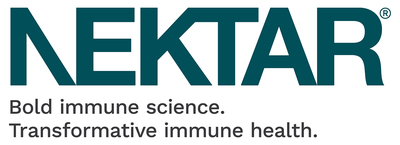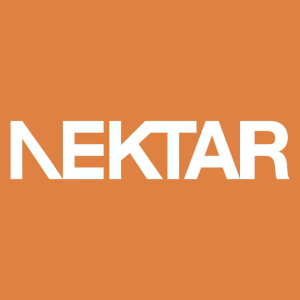Nektar Presents New Data from REZOLVE-AD Phase 2b Study for Rezpegaldesleukin in Late-Breaker Oral Presentation at EADV 2025
Rhea-AI Summary
Nektar Therapeutics (Nasdaq: NKTR) announced positive results from its REZOLVE-AD Phase 2b study of rezpegaldesleukin for moderate-to-severe atopic dermatitis at the EADV Congress. The study met its primary endpoint with significant mean improvement in EASI scores at week 16 across all treatment arms versus placebo.
The high dose (24 µg/kg q2w) demonstrated strong efficacy with 61% mean EASI improvement, 42% EASI-75 response, and 20% vIGA-AD 0/1 response. Notably, patients who crossed over from placebo showed deepening responses after 24 weeks, with EASI-75 reaching 62% and vIGA-AD 0/1 reaching 38%.
The drug showed a favorable safety profile with 60.3% treatment-emergent adverse events across treatment arms, comparable to placebo's 57.5%, and only 1.6% serious adverse events.
Positive
- Met primary endpoint with 61% EASI improvement in high dose arm vs 31% for placebo
- Achieved statistical significance in multiple secondary endpoints including EASI-75, EASI-90, and patient-reported outcomes
- Demonstrated deepening efficacy with extended treatment (62% EASI-75 at week 24)
- Favorable safety profile with serious adverse events only in 1.6% of treated patients
Negative
- 5.6% of patients discontinued treatment due to adverse events in drug arms vs 0% in placebo
- Lower dose arms showed reduced efficacy compared to high dose
- Some secondary endpoints did not achieve statistical significance in lower dose arms
News Market Reaction – NKTR
On the day this news was published, NKTR gained 15.06%, reflecting a significant positive market reaction. Argus tracked a peak move of +9.0% during that session. Our momentum scanner triggered 28 alerts that day, indicating elevated trading interest and price volatility. This price movement added approximately $146M to the company's valuation, bringing the market cap to $1.12B at that time.
Data tracked by StockTitan Argus on the day of publication.
Study met primary and key secondary endpoints at week 16 in patients with moderate-to-severe atopic dermatitis
High dose rezpegaldesleukin achieved statistical significance on multiple patient-reported outcome assessments at completion of 16-week induction period
Interim data presented for patients who received placebo during induction period and crossed over to receive 24 weeks of treatment with high dose rezpegaldesleukin show deepening of EASI-75 response to
In the Phase 2b study, rezpegaldesleukin achieved statistical significance on the primary endpoint of mean improvement in Eczema Area and Severity Index (EASI) at week 16 over baseline for all rezpegaldesleukin arms versus placebo. Statistical significance at week 16 was also achieved for key secondary endpoints measuring disease reduction in patients with moderate to severe atopic dermatitis, including EASI-75, EASI-90, Itch Numerical Rating Scale (NRS), Validated Investigator Global Assessment for Atopic Dermatitis (vIGA-AD) and Body Surface Area (BSA).
"These data from REZOLVE-AD presented today show a rapid onset of treatment effect for both clinician-assessed and patient-reported outcomes following the first few doses of rezpegaldesleukin," Prof. Jonathan Silverberg, MD, PhD, MPH. "In addition, for the first time, we observe a deepening of clinical effect for patients with extended dosing of investigational therapy beyond 16 weeks, with a strengthening of absolute EASI reduction, along with higher EASI-75 and vIGA 0/1 response rates following 24 weeks of treatment. These results build on the body of data generated to-date for rezpegaldesleukin that show the advantage of this novel, broad-based Treg mechanism over other novel mechanisms in development to treat atopic dermatitis."
Highlights of the REZOLVE-AD Phase 2b Study:
Week 16 Efficacy
24 µg/kg q2w (high dose) | 18 µg/kg q2w (middle dose) | 24 µg/kg q4w (low dose) | Placebo | |
Primary Endpoint | N=104 | N=106 | N=110 | N=73 |
Mean improvement in | p<0.001 | p<0.001 | p<0.001 | 31 % |
Key Secondary | N=73 | N=104 | N=106 | N=110 |
EASI-75 | p<0.001 | p<0.001 | p<0.05 | 17 % |
vIGA-AD 0/1 | p<0.05 | p<0.01 | ns | 8 % |
EASI-90 | p<0.05 | ns | ns | 9 % |
Itch NRS* (> 4-point reduction) | p<0.01 | p<0.05 | ns | 16 % |
Mean improvement in | p<0.001 | p<0.001 | p<0.001 | 17 % |
EASI-50 | p<0.001 | p<0.001 | p<0.01 | 34 % |
*N=63, 95, 92, and 102 for the placebo, 24 µg/kg q2w, 18 µg/kg q2w, and 24 µg/kg q4w arms; ns=not significant.
Key Patient-Reported Outcome Assessments
Endpoint | 24 µg/kg q2w (high dose) | 18 µg/kg q2w (middle dose) | 24 µg/kg q4w (low dose) | Placebo |
Daily Life Quality Index (> 4-point reduction) | p<0.05 | ns | p<0.05 | 54 % |
Atopic Dermatitis (> 5-point reduction) | p<0.001 | p<0.01 | p<0.01 | 35 % |
Pain Numeric Rating (> 4-point reduction) | p<0.05 | ns | ns | 22 % |
Atopic Dermatitis Sleep (> 1.25-point reduction) | p<0.01 | ns | ns | 30 % |
*N=65, 100, 102, and 107 for the placebo, 24 µg/kg q2w, 18 µg/kg q2w, and 24 µg/kg q4w arms for DLQI; N=67, 101, 104 and 107 for ADCT; N=45, 71, 70 and 85 for ADSS Q1; and N=50, 84, 82 and 90 for Pain NRS; ns=not significant.
The global Phase 2b REZOLVE-AD study randomized 393 patients with moderate-to-severe atopic dermatitis to receive subcutaneous treatment with three doses of rezpegaldesleukin: a high dose of 24 µg/kg every two weeks (q2w), a middle dose of 18 µg/kg every two weeks (q2w), and a low dose of 24 µg/kg every four weeks (q4w), or placebo q2w. Primary and secondary endpoints were assessed at week 16. Following week 16, rezpegaldesleukin-treated patients who achieved EASI percent score reductions of >50 (EASI-50) were re-randomized (1:1) to continue at the same dose level on a q4w or q12w regimen through study week 52 in a blinded maintenance period. Placebo patients with EASI percent score reductions of ≥ 50 percent continue to receive placebo q4w.
The REZOLVE-AD study design allowed for patients who originally received placebo in the initial induction period and achieved less than EASI-50 at Week 16 to enter into an open-label treatment escape arm to receive the high-dose rezpegaldesleukin regimen for a treatment period of up to 36 weeks.
Results presented today at EADV included interim data for 42 placebo patients who crossed over into the treatment escape arm. At the time of the data cut (August 18, 2025), 21 patients had reached 24 weeks of treatment with high dose rezpegaldesleukin (24 µg/kg q2w). Continuous treatment with rezpegaldesleukin demonstrated deepening of responses. For these patients, mean percent reduction in EASI at crossover week 16 and at crossover week 24 were
"These results from REZOLVE-AD, including the improved responses observed with duration of dosing beyond 16 weeks, demonstrate the potential of this new biology and the promise of Tregs as a therapeutic modality to treat inflammatory skin disorders," said Jonathan Zalevsky, Ph.D., Chief Research and Development Officer of Nektar. "With this important validation of a novel Treg mechanism in atopic dermatitis, we look forward to reporting the results in December of this year for rezpegaldesleukin in patients with alopecia areata."
Safety Over 16-Week Induction Period
24 µg/kg | 18 µg/kg | 24 µg/kg | Pooled | Placebo | |
N=104 | N=106 | N=110 | N=320 | N=73 | |
Patients with any TEAE, | 69 (66.3 %) | 60 (56.6 %) | 64 (58.2 %) | 193(60.3 %) | 42 (57.5 %) |
Patients with any Serious AE | 1 (1.0 %) | 4 (3.8 %) | 0 | 5 (1.6 %) | 0 |
Any Drug-Related Serious | 0 | 2 (1.9 %) | 0 | 2 (0.6 %) | 0 |
Patients with Severe AE | 3 (2.9 %) | 6 (5.7 %) | 1 (0.9 %) | 10 (3.1 %) | 1 (1.4) % |
Any Drug-Related Severe AE2 | 3 (2.9 %) | 3 (2.8 %) | 0 | 6 (1.9 %) | 0 |
TEAEs leading to study drug | 8 (7.7 %) | 5 (4.7 %) | 5 (4.5 %) | 18 (5.6 %) | 0 |
1. | Serious TRAEs: Drug hypersensitivity – severe; Tonsillitis – moderate. Both events resolved. |
2. | Severe TRAEs (excluding Serious TRAEs): pyrexia (24 µg/kg q2w); two ISRs (24 µg/kg q2w); ISR, chest pain (18 µg/kg q2w). All five events resolved. |
Details of the presentation at EADV are as follows:
- Abstract ID: LBA-108
- Oral Presentation: "Efficacy and Safety of Rezpegaldesleukin, A Selective Regulatory T-Cell-Inducing Interleukin-2 Conjugate, in the Treatment of Atopic Dermatitis: Final Results from the 16-Week Induction of a Randomized Phase 2b Study (REZOLVE AD)"
- Presenter: Dr. Jonathan Silverberg
- Session Title: D2T01.3C
- Presentation Date and Time: Thursday, September 18th 14:45 – 15:00 pm
- Location: Paris Nord
The presentation is available on Nektar's website at http://www.nektar.com under Scientific Publications.
About REZOLVE-AD Phase 2b Study
The REZOLVE-AD trial (NCT06136741) was initiated in October 2023 and enrolled patients across approximately 110 sites globally with:
About Rezpegaldesleukin
Autoimmune and inflammatory diseases cause the immune system to mistakenly attack and damage healthy cells in a person's body. A failure of the body's self-tolerance mechanisms enables the formation of the pathogenic T lymphocytes that conduct this attack. Rezpegaldesleukin is a potential first-in-class resolution therapeutic that may address this underlying immune system imbalance in people with many autoimmune and inflammatory conditions. It targets the interleukin-2 receptor complex in the body to stimulate proliferation of powerful inhibitory immune cells known as regulatory T cells. By activating these cells, rezpegaldesleukin may act to bring the immune system back into balance.
In February 2025, the
Rezpegaldesleukin is being developed as a self-administered injection for a number of autoimmune and inflammatory diseases. It is wholly owned by Nektar Therapeutics.
About Atopic Dermatitis
Atopic dermatitis is the most common type of eczema, affecting approximately 30 million people in
About Nektar Therapeutics
Nektar Therapeutics is a clinical-stage biotechnology company focused on developing treatments that address the underlying immunological dysfunction in autoimmune and chronic inflammatory diseases. Nektar's lead product candidate, rezpegaldesleukin (REZPEG, or NKTR-358), is a novel, first-in-class regulatory T cell stimulator being evaluated in two Phase 2b clinical trials, one in atopic dermatitis and one in alopecia areata. Nektar's pipeline also includes a preclinical bivalent tumor necrosis factor receptor type II (TNFR2) antibody and bispecific programs, NKTR-0165 and NKTR-0166, and a modified hematopoietic colony stimulating factor (CSF) protein, NKTR-422. Nektar, together with various partners, is also evaluating NKTR-255, an investigational IL-15 receptor agonist designed to boost the immune system's natural ability to fight cancer, in several ongoing clinical trials.
Nektar is headquartered in
Cautionary Note Regarding Forward-Looking Statements
This press release contains forward-looking statements which can be identified by words such as: "will," "develop," "potential," "target," "promise," "address," and similar references to future periods. Examples of forward-looking statements include, among others, statements regarding the therapeutic potential of, and future development plans for, rezpegaldesleukin, NKTR-0165, NKTR-0166, NKTR-422, and NKTR-255. Forward-looking statements are neither historical facts nor assurances of future performance. Instead, they are based only on our current beliefs, expectations and assumptions regarding the future of our business, future plans and strategies, anticipated events and trends, the economy and other future conditions. Because forward-looking statements relate to the future, they are subject to inherent uncertainties, risks and changes in circumstances that are difficult to predict and many of which are outside of our control. Our actual results may differ materially from those indicated in the forward-looking statements. Therefore, you should not rely on any of these forward-looking statements. Important factors that could cause our actual results to differ materially from those indicated in the forward-looking statements include, among others: (i) our statements regarding the therapeutic potential of rezpegaldesleukin, NKTR-0165, NKTR-0166, NKTR-422 and NKTR-255 are based on preclinical and clinical findings and observations and are subject to change as research and development continue; (ii) rezpegaldesleukin, NKTR-0165, NKTR-0166, NKTR-422 and NKTR-255 are investigational agents and continued research and development for these drug candidates is subject to substantial risks, including negative safety and efficacy findings in future clinical studies (notwithstanding positive findings in earlier preclinical and clinical studies); (iii) rezpegaldesleukin, NKTR-0165, NKTR-0166, NKTR-422 and NKTR-255 are in clinical development and the risk of failure is high and can unexpectedly occur at any stage prior to regulatory approval; (iv) data reported from ongoing clinical trials are necessarily interim data only and the final results will change based on continuing observations; (v) the timing of the commencement or end of clinical trials and the availability of clinical data may be delayed or unsuccessful due to regulatory delays, slower than anticipated patient enrollment, manufacturing challenges, changing standards of care, evolving regulatory requirements, clinical trial design, clinical outcomes, competitive factors, or delay or failure in ultimately obtaining regulatory approval in one or more important markets; (vi) a Fast Track designation does not increase the likelihood that rezpegaldesleukin will receive marketing approval in
Contacts:
For Investors:
Vivian Wu
VWu@nektar.com
Corey Davis, Ph.D.
LifeSci Advisors, LLC
cdavis@lifesciadvisors.com
212-915-2577
Ahu Demir, Ph.D.
LifeSci Advisors, LLC
ademir@lifesciadvisors.com
212-915-3820
For Media:
Jonathan Pappas
LifeSci Communications
857-205-4403
jpappas@lifescicomms.com
1. Eczema stats. National Eczema Association (2022, September 27). https://nationaleczema.org/research/eczema-facts/
![]() View original content to download multimedia:https://www.prnewswire.com/news-releases/nektar-presents-new-data-from-rezolve-ad-phase-2b-study-for-rezpegaldesleukin-in-late-breaker-oral-presentation-at-eadv-2025-302560421.html
View original content to download multimedia:https://www.prnewswire.com/news-releases/nektar-presents-new-data-from-rezolve-ad-phase-2b-study-for-rezpegaldesleukin-in-late-breaker-oral-presentation-at-eadv-2025-302560421.html
SOURCE Nektar Therapeutics








